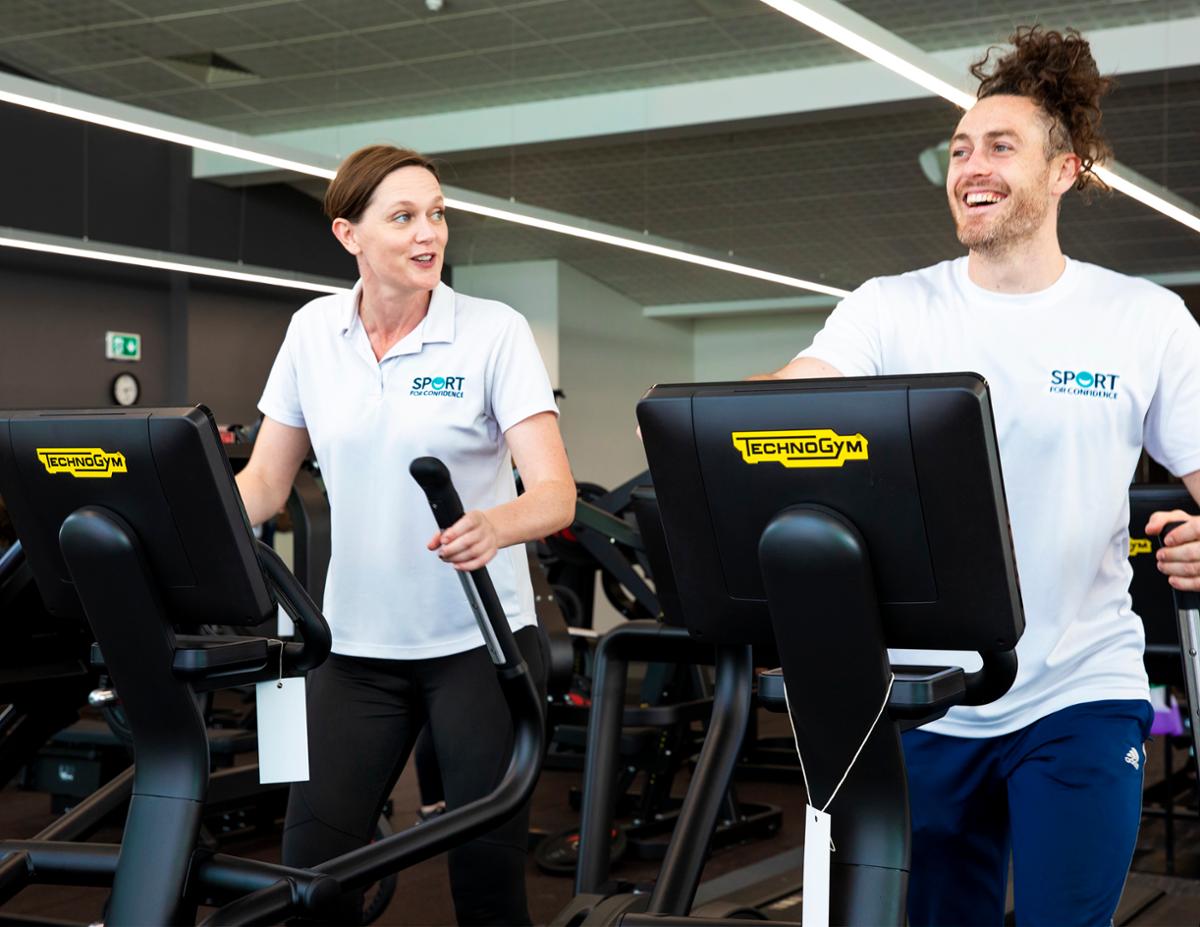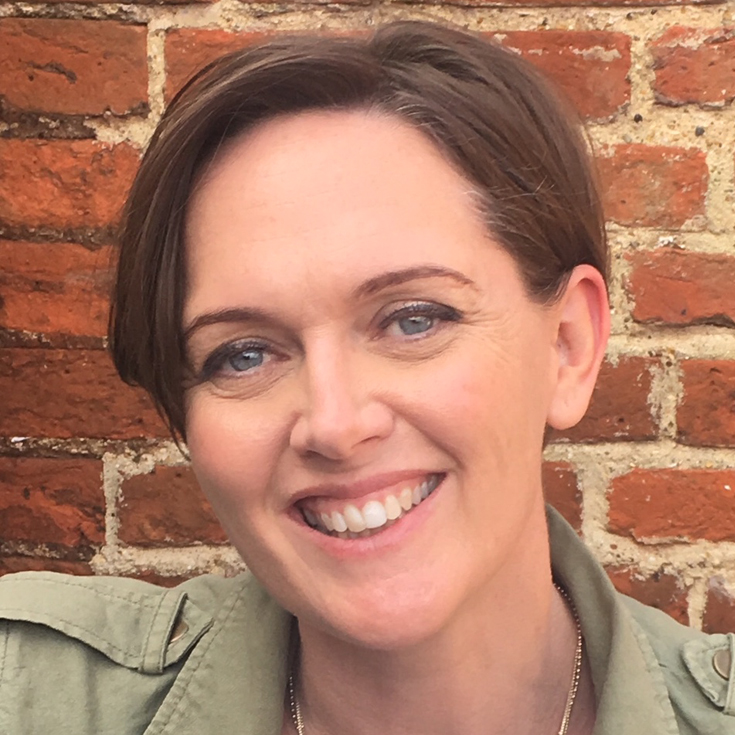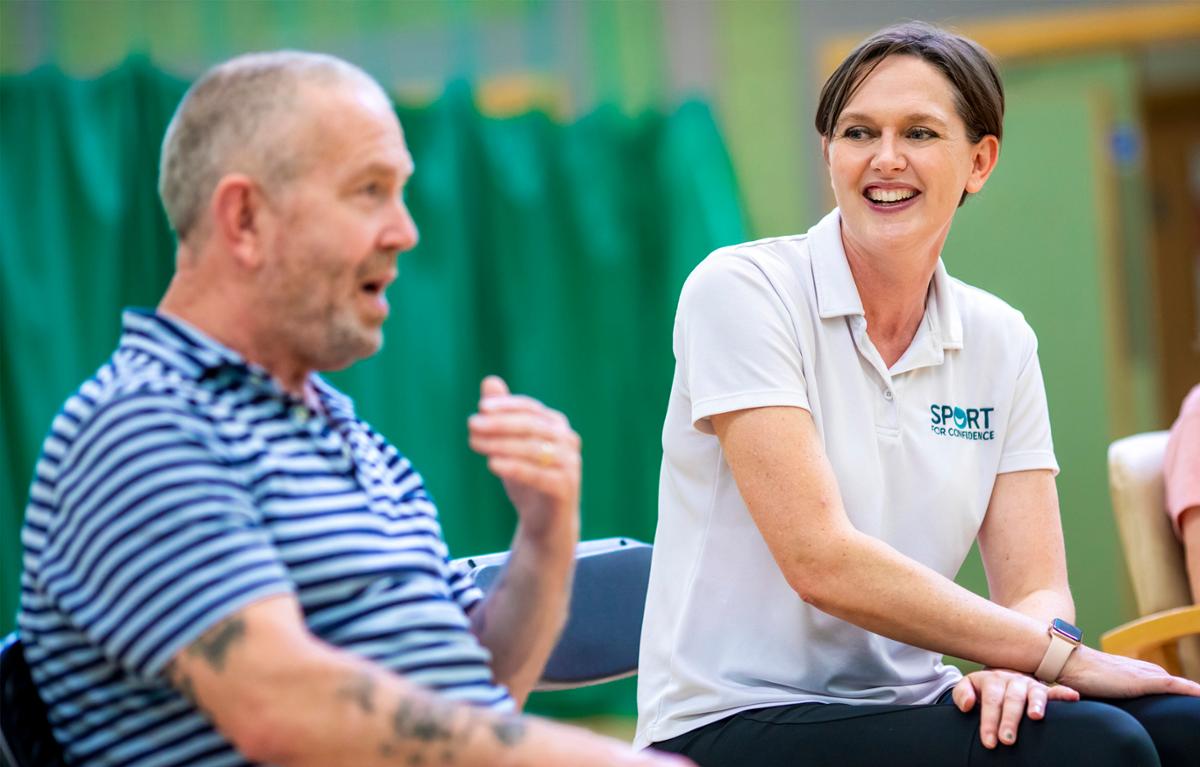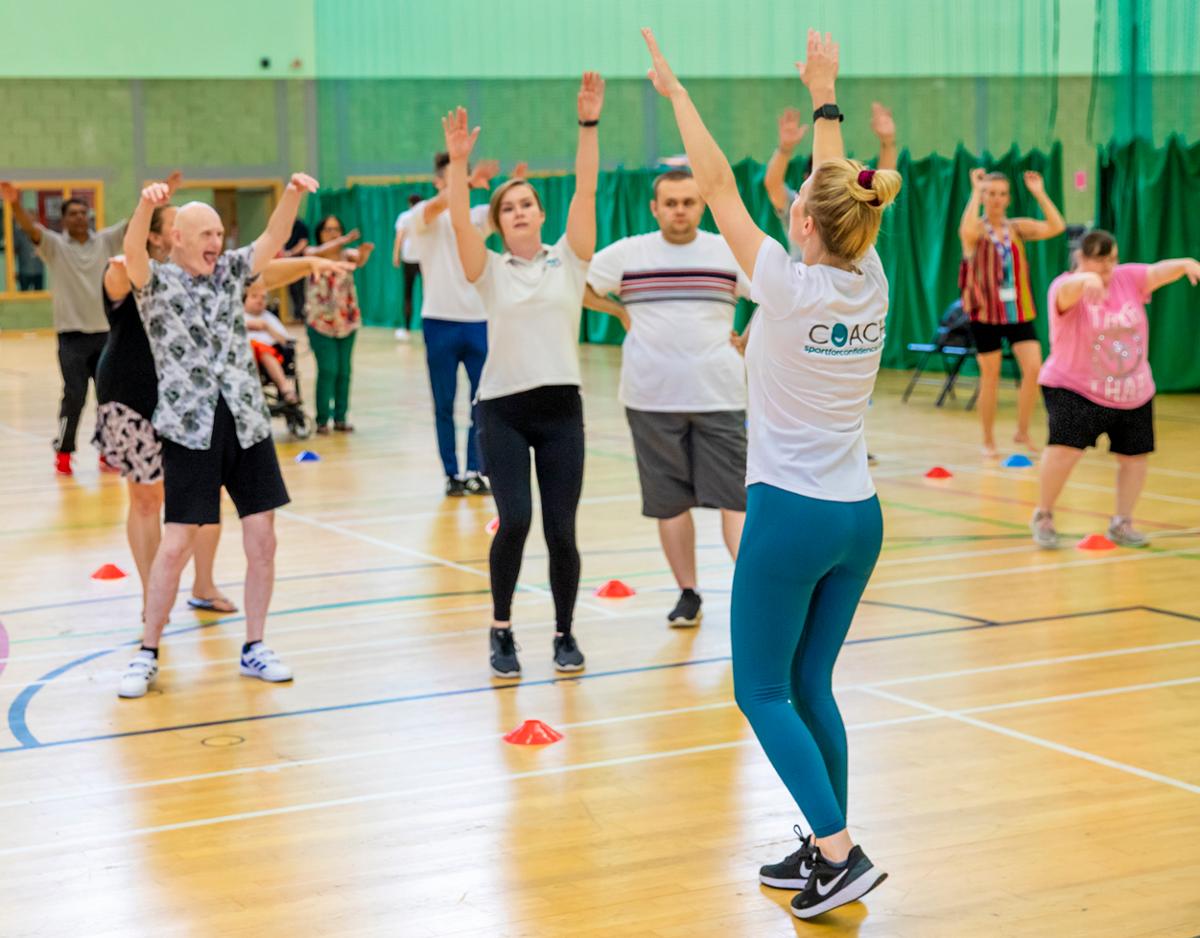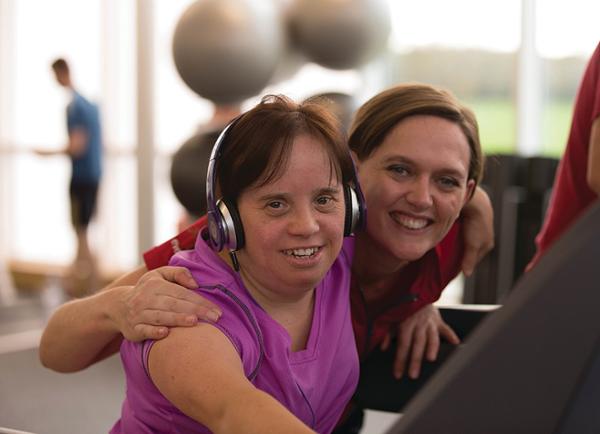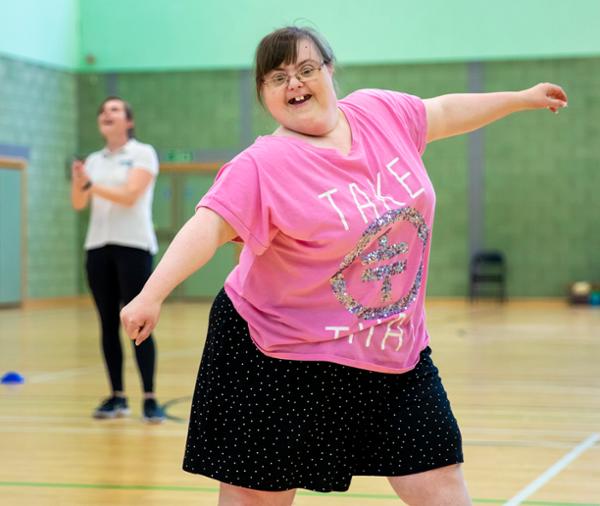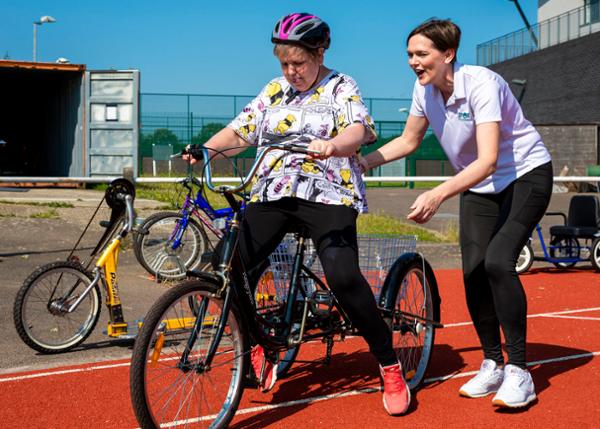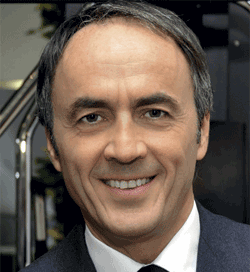Tell us about Sport for Confidence
We place occupational therapists (OTs) in leisure centres to work collaboratively with sports coaches to make the spaces more inclusive to marginalised groups, particularly those with disabilities and long term health conditions. We’re also currently looking to help refugees and asylum seekers.
There are 37,000 OTs in the UK, but I was the first to work out of a leisure centre. Since 2015, Sports for Confidence has created physical activity opportunities for more than 3,000 individuals each month who face barriers to exercise.
What benefits can an OT bring?
Trained to degree level in mental health and physical disability, OTs take a whole-person approach, which enables them to support individuals to achieve their full potential. In a leisure centre setting, OTs join the dots to make the environment more inclusive, helping clients to overcome personal barriers, as well as adapting both the activity and the environment to include them.
What are the main barriers marginalised groups have to deal with?
Lack of opportunity is one of the biggest. Data from Activity Alliance shows there’s a widening gap around people accessing physical activity, but we’re seeing demand increase daily at Sport for Confidence sites, so we know the motivation is there, but the right opportunities aren’t always.
Cashless leisure centres are a backwards step for inclusion, as 1.3 million people in this country are unbanked. If you don’t have a bank account, or you have a learning disability and someone else is managing your finances, or you’re an older person who prefers to use cash, digitally excluded, or a young person with pocket money, it now makes it impossible to access cashless facilities. Cashless also removes the experience of going to reception and paying, which can be powerful skill development for certain individuals.
Accessibility of the environment, communication not being inclusive, or information not being accessible are common barriers, but there are many personal ones as well, such as being unsure of what to wear.
How can operators remove these barriers?
It’s all about taking a personalised approach. Everyone has a personal experience with physical activity and we need to ask them how we can help. Adapting a regular session to accommodate marginalised individuals widens their choice and gives them the opportunity to integrate.
The industry is keen on using labels, creating Stroke Survivor Groups, Mental Health Sports Groups, Cardiac Rehab Groups. It’s how funding is allocated and how outcome measures are targeted, but labels dilute the experience for the end user. From the outset I wanted Sport for Confidence to be a ‘no labels’ model.
If you’re in Cardiac Rehab you arrive with a label, staff respond differently, the individual responds differently and can’t transcend that label. People living with long term health conditions don’t want to be constantly reminded of it, they want relief from their condition and to have an experience along with everyone else.
Operators could assess what they’re already offering and look at how that could be opened up to be fully inclusive. For example, don’t create a Disability Zumba class, but ask the individuals how to make it a good experience for them. People are usually very clear in articulating what they want. It might be minor adjustments, such as coming through the turnstiles earlier than others to allow more time to get changed, or having a five minute chat with the instructor at the start of the session so they know what to expect.
At Basildon Sports Village, where I’m based, we’ve changed Dementia-Friendly Swimming to Sensory Friendly Swimming. These sessions are quiet: no whistles or unpredictable stuff going on, no jumping in.
How can private sector health and fitness operators make facilities more accessible?
By avoiding a ‘one size fits all’ approach and being responsive to individual needs.
They can also grow to become more accessible by listening and learning from people with lived experience and involving them in the design and development of what they offer. For example, any new session we deliver originates from a participant need that we weren’t able to meet with our original offer. Being aware of reasonable adjustments and flexible in problem solving will enable all facilities to become more inclusive and valuable asset to local communities.
What are the advantages for operators who take this approach?
There are huge advantages: bringing in new members, along with their carers, family and friends and the associated secondary spend. It makes the leisure centre a hub, with a reputation for being a positive place that anyone can visit, giving more populations the confidence to get over the threshold, and attracting those who often feel excluded.
It also has massive advantages for the individuals, allowing them to develop skills which can be used in other areas of their lives, giving them a sense of belonging, opening up new horizons, changing how they feel about the future and providing a safe place where they can get support.
In recognition of your work, you’ve been awarded an honorary degree and a British Empire Medal. What impact will this have?
The future is about having conversations around doing it better, challenging inclusion and creating opportunities to really empower people. Being given the degree by Writtle University College will allow us to work with the education sector more closely and look at how we can influence the curriculum being undertaken by occupational therapists in the future, as well as building a community and sharing good learning to advance education.
For the next five years we’re a system partner with Sport England, which will allow us to do important work: challenging operators to be more inclusive, while amplifying the voices of the people we work with, and strengthening the relationship with communities, sport, physical activity and health and wellbeing. We’ll also be working with national partners such as Disability Rights UK and NGBs to produce more evidence-based guides, especially to specific activities.








